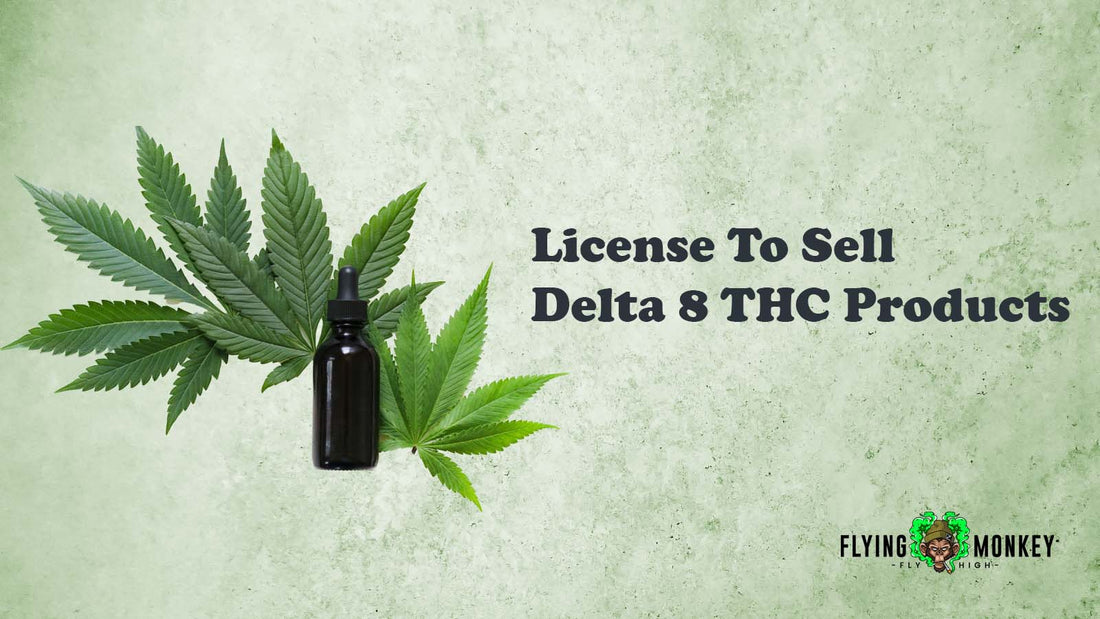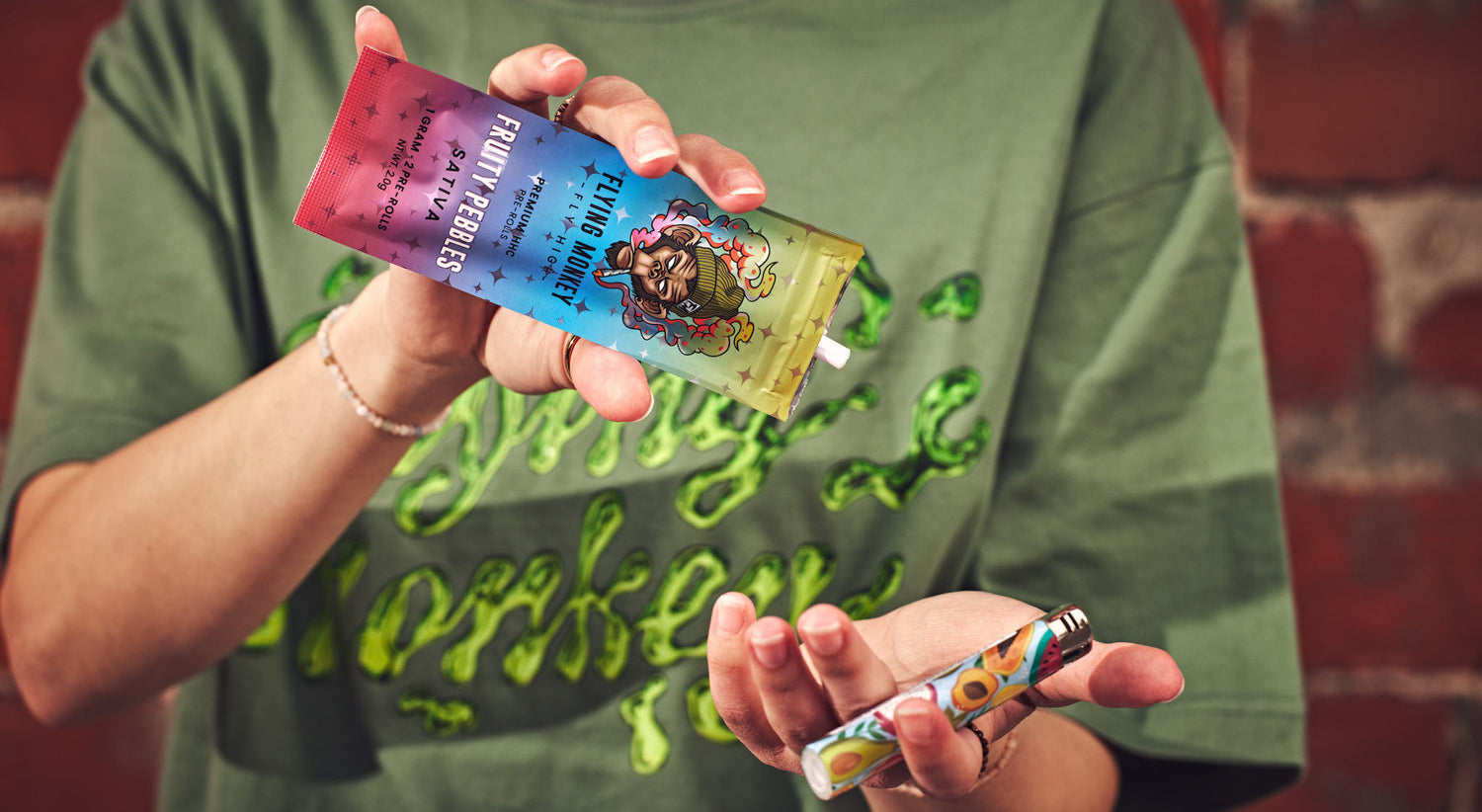What is Delta 8 THC?
The psychoactive compound delta-8 tetrahydrocannabinol, sometimes referred to as delta 8 THC, is a component of the Cannabis sativa plant, of which hemp and marijuana are two forms. One of the more than 100 cannabinoids that the cannabis plant naturally produces, delta-8 THC is not present in high concentrations in the cannabis plant. As a result, cannabidiol produced from hemp is often used to produce concentrated levels of delta-8 THC (CBD).
While delta-8 THC may be produced in a lab from CBD, it can also be found in small amounts in cannabis. Similar to the "normal delta-9 THC '' of marijuana, delta-8 THC attaches to the body's endocannabinoid system and makes a person feel high. The hemp plant is the source of the THC variant known as delta-8. You still feel euphoric or high from ingesting Delta-8 THC products for sure. However, I n contrast to Delta-9, the typical THC (if you're used to it before), the high that you feel with Delta-8 THC may feel different. According to reports, using Delta 8 THC might make you feel relaxed, calm, clear-headed, giddy, tired, and hungry, among other things. Some users advised starting with lesser amounts, such as a half or quarter gummy, for both a body and a head high.
Delta-8 THC vs. Delta-9 THC
Regarding delta-8 THC products, there are few scientific studies and clinical trials, and the majority of its putative advantages rely on marketing claims. Although legality concerns make this research challenging, more information is required to determine any potential health benefits associated with delta-8 THC. Although more research is required, some findings indicate that consuming delta-8 THC may cause sedation, euphoria, and pain alleviation, as reported in the “Journal of Cannabis Research”.
Research suggests that because delta-8 THC has a lesser psychoactive strength than delta-9 THC, it may have fewer negative side effects and a softer effect on consumers. Studies investigating possible advantages, such as delta-8 THC's capacity to lessen anxiety, boost appetite, as well as possess analgesic and neuroprotective characteristics, are still in progress.
The legality of Delta 8 THC Products
Somewhere around 500 chemical components, which include the 100 cannabinoids like CBD and various types of THC, are found in the cannabis plant, as was stated previously. Although several US states have legalized marijuana for either medical or recreational purposes, the drug is still classified as a Schedule I drug at the federal level. According to the Drug Enforcement Administration, this denotes that it is a classification set aside for substances with a high potential for misuse and no therapeutic value. The legality of the plant's specific components, such as delta-8 THC, is therefore not clear.
Here is the list of the 21 U.S. states that have restrained or banned the buy and sell of delta-8 products online as well as offline:
- Alaska
- California
- Colorado
- Connecticut
- Delaware
- Idaho
- Iowa
- Louisiana
- Maryland
- Michigan
- Minnesota
- Montana
- New York
- Nevada
- North Dakota
- Oregon
- Rhode Island
- South Dakota
- South Carolina
- Utah
- Vermont
The states of the USA where Delta-8 is available in 29 states and a district:
- Alabama
- Arizona
- Arkansas
- Florida
- Georgia
- Hawaii
- Illinois
- Indiana
- Kansas
- Kentucky
- Maine
- Massachusetts
- Mississippi
- Missouri
- Nebraska
- New Hampshire
- New Jersey
- New Mexico
- North Carolina
- Ohio
- Oklahoma
- Pennsylvania
- Tennessee
- Texas
- Virginia
- Washington
- Washington DC
- West Virginia
- Wisconsin
- Wyoming
All the above states have not banned the use of Delta-8 THC products but still, strictly require a license. Any type of delta-8 THC product cannot be sold by unlicensed dealers.
In California, the delta-8 THC product market is treated the same way as marijuana and applies the same regulations. The state has enacted legislation to control the use, ownership, distribution, and manufacturing of delta-8 products made from hemp that contain more THC than the legal limit of 0.3 percent. All delta-8 products with a THC content of greater than 0.3 percent must be produced in accordance with stringent state regulations. No unauthorized retailers can buy or sell Delta-8 THC products online or offline. Similar to delta-8, delta-10, HHC, and THC-O products containing more than 0.3 percent THC are similarly restricted and governed by California state law.
Beginning on October 11, 2021, enterprises in Michigan have been prohibited from producing or selling goods containing +delta-8 THC and other intoxication cannabis products without first obtaining a license from the Michigan Marijuana Regulatory Agency (MRA).
How to obtain Delta-8 THC license?
You need two licenses in order to sell Delta-8 products. The first one is a company license. Small firms typically choose an LLC. Visit the local government website and look up your preference. Typically, registration will cost around $100.
If you intend to purchase your goods from wholesalers, it would be wise to obtain a reseller license as well. State laws governing resale and business licenses and permissions vary from one state to the next. Take into account the laws and the Delta-8 THC product market in the state you want to sell or purchase from, then act accordingly.
Conclusion
The legality of delta-8 THC products in the market is still open to question. Despite the Federal Controlled Substance Act's assertion that cannabis is banned on the federal level due to its delta-9 THC percentage, each state has its own regulations governing its use for both medical and recreational purposes. Federal law permits the use of CBD that has been produced from hemp, but not from cannabis.
Even states that have not outright prohibited or limited the buying or selling of delta-8 THC have rigorous regulations about how the delta-8 THC market operates. There are a few stringent licensing requirements that must be followed.

